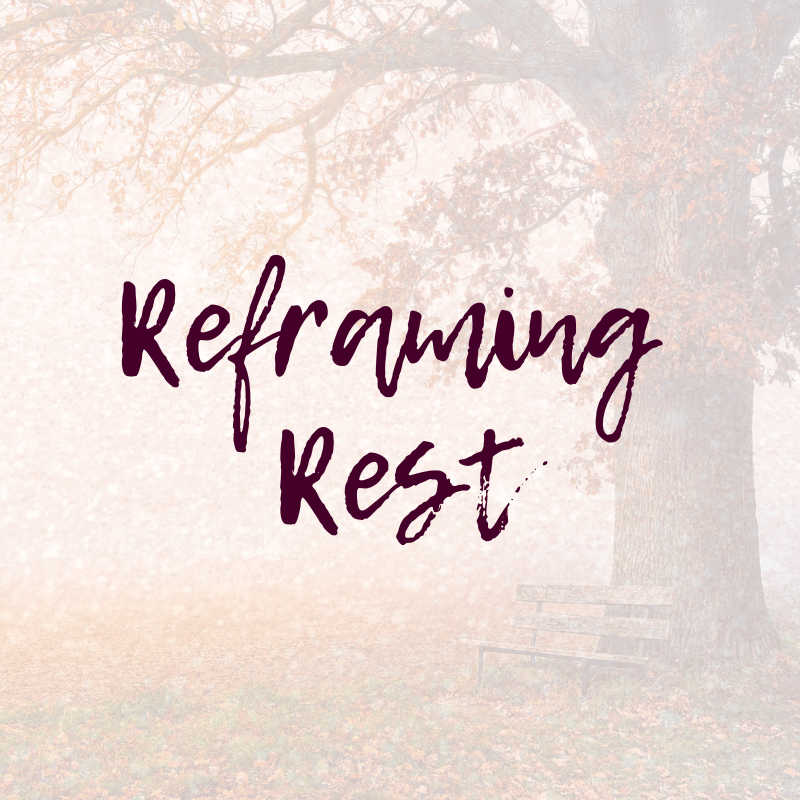
How is this year for you so far?
I’d love to hear from you. My word so far has been… Delay. I have been invited, to put it positively, to take a lot of rest.
Although it has not been fun at the time, it did bring several perception changes that I want to share below.
This year, I uninteniontionally learned to start slow
Usually, I love a good start of the new year, diving in head first. I admit though, that the fun fades away by February at best. So well, I got to experience what it’s like to have a slow start.
A first flu, another one, and finally most of January was spent ill, leading me to fear that I was having a burnout relapse. Most of my 2022 from March onwards had been marked by a burnout, for which I am grateful in hindsight, but not necessarily eager to repeat the recovery process.
Rest is more than sleep
A LinkedIn post brought a turning point as it talked about seven types of rest by Saundra Dalton-Smith, who turned out to have a TED talk as well as a book. I had no idea. Her message is, simply said that rest is not just about sleep. In fact, the quality of our rest affects the quality of our sleep. As a doctor, she identified rest deficit symptoms in her patients and came to the conclusion that we all need different types of rest, at different stages in our lives. Truthbomb.
Depending on where we spend most of our energy, we also need to rest and refill our tank in that area. On Restquiz.com you can find out which type(s) of rest you might need. Here below is a great overview which shows how to get those different types of rest.

Changing the way we perceive rest
As I am reading Daulton-Smith’s book ‘Sacred Rest’, my perception of rest is starting to change, and I believe there lies a solution. It takes intentionality to slow down, or as John Mark Comer summarizes it in his perfectly titled book, The Ruthless Elimination of Hurry:“The solution to an overbusy life is not more time. It’s to slow down and simplify our lives around what really matters.”Prioritizing our lives. An interesting fact about that word is that for approx. 500 years, priority was singular, there were no priorities but just. one. priority. It says a lot about our current culture. Also, it doesn’t just say to ‘simplify’ our lives, we also need to ‘slow down’. Slowing down shows us what we need to simplify and what really matters.
When we are in a train, we see a whirlwind of landscape impressions rushing by, but only as it slows down do we see the details. Slowing down shows us the details of our lives, it shows us if our train is on the right track, moving into the right direction, and whether we’re even on the right train!
So yes, slowing down is beneficial. But hard!
Most of us were raised with the idea that we need to be productive all the time, get things done, go for our goals, hustle, you get the idea. I don’t know about you, but when I slow down, I am overtaken by a sense of guilt and a grand show of todos waving wildly at me from the movie screen of my mind. But when burnout hit, there was no longer an escape from rest. My mind was racing, but my body had hit the break.One look at the rising number of stress-related complaints and burnout , shows us where this go-go-go philosophy is taking us. None of us is immune, there is no pill or vaccine against it. Although the seven types of rest do come close.
Unfortunately, rest has a bad rep for many of us.
We don’t see it as a medicine that helps us heal, a supplement that builds our strength or a way of life that nourishes us in the long run. Most of us see it as an afterthought, a necessary evil or something to save for our vacation. This is where reframing comes in.Reframing means seeing something from a different perspective
“Cognitive reframing is a technique used to shift your mindset so you’re able to look at a situation, person, or relationship from a slightly different perspective.”I love the analogy of putting a small picture frame in front of a big canvas. Depending on where on the canvas you place that small frame, you will see a different part of the painting, a different painting even. Depending on how we frame our life experiences, we will experience our lives differently. When it comes to reframing rest, we can start by looking at what holds us back from taking it.
-Verywellmind.com
What keeps you from getting the rest you need?
Do you find rest a waste of time, a luxury or an unfortunate necessity? Do you find it hard to find and free the time? Or to express your need for rest to those around you? Do you judge yourself for needing rest, perhaps feeling selfish or lazy? Do you have no idea how to even rest?One way to reframe, is by turning your objection around, and finding proof for that new statement.
For example, the first statement: ‘rest is a waste of time’, becomes: ‘rest gives me more time’. No matter how weird it may sound, you then go on to find some proof for it. Perhaps you remember that one day when you took a nap and got a second wind, finishing that presentation faster than expected. Or the afternoon you took a break and went to the beach, then got an idea that saved you a lot of time. It can be fun to play around with, and a nice journaling exercise.
Rest is not for weaklings. Hollowing out space for rest is work. It means saying no. It means having limits with ourselves. It means having limits with others. It takes courage to rest in the midst of an outcome-driven society. It takes strength to walk away from good in the pursuit of better. -Dr Saundra Dalton-Smith
Rest, in order to run
Rest contributes to increased inspiration and insight, direction and decision-making, patience and perseverance, as well as mental and physical health. Essential elements that contribute to improving our lives, ourselves, and the lives of others. In the Bible there is a beautiful verse that says:“let us run with endurance the race that is set before us” -Hebrews 12:1When we focus on the long run (no pun intended), it makes sense to rest regularly so we can keep on running, in a relaxed way of course.
A moment of rest right now…
I could go on for ages, but I also want to leave you with a moment to actually rest after reading this. If you have two minutes, I invite you to listen to the restful recording I made for you, a short breathing exercise that I share with you below, that you can do at any time…Wishing you a beautiful ‘rest’ of your day, without worries and hurries!


Hi Nicky, I was always a person “on the go” but since I have aged I welcome a slower pace. I enjoy my quiet time to recharge and my body and mind thank me. Keep up your good work.
Hi Bonnie, that’s so beautiful to hear. I love the attitude of acceptance and calm that your post exudes. It’s inspiring! And thank you for your words of encouragement 🙂
Thank you, Nicky, for this enlightening perspective on the multifaceted nature of rest. Your insights challenge the conventional notion that rest is merely the absence of activity, highlighting instead its vital role in holistic well-being. The concept of reframing rest, particularly through the lens of Dr. Saundra Dalton-Smith’s seven types of rest, offers a nuanced approach to self-care that goes beyond physical recuperation. It’s a timely reminder that in our fast-paced world, intentional rest is not a luxury but a necessity for sustained productivity and emotional resilience. Your reflections encourage us to reassess our relationship with rest and to embrace it as a proactive tool for health and harmony.
Hi Avid Counseling,
Thank you so much for your attentive comment and the way you beautifully put it together, that “intentional rest is not a luxury but a necessity for sustained productivity and emotional resilience”. Love that! Wishing you a restful remainder of your day! ☀️